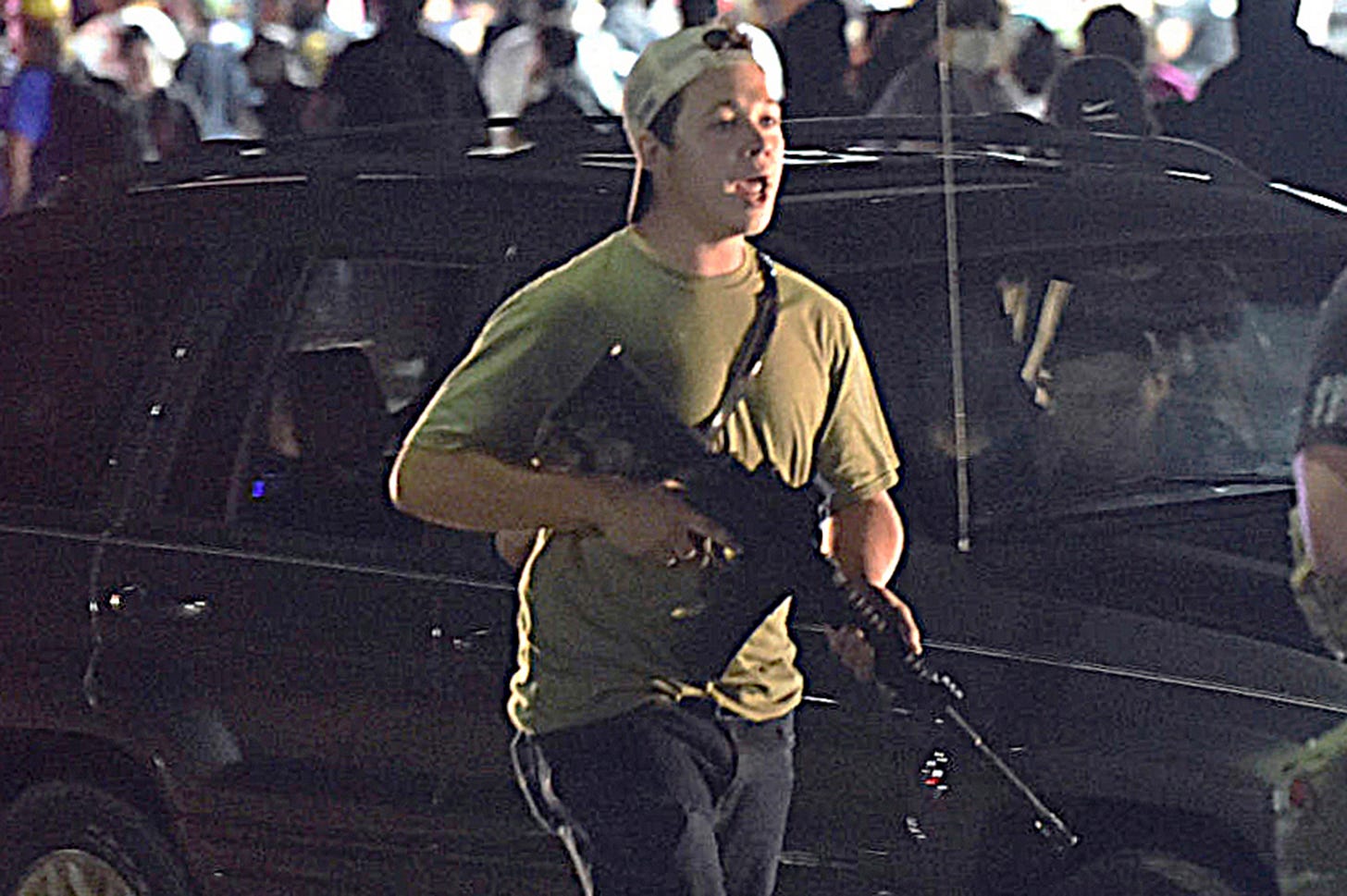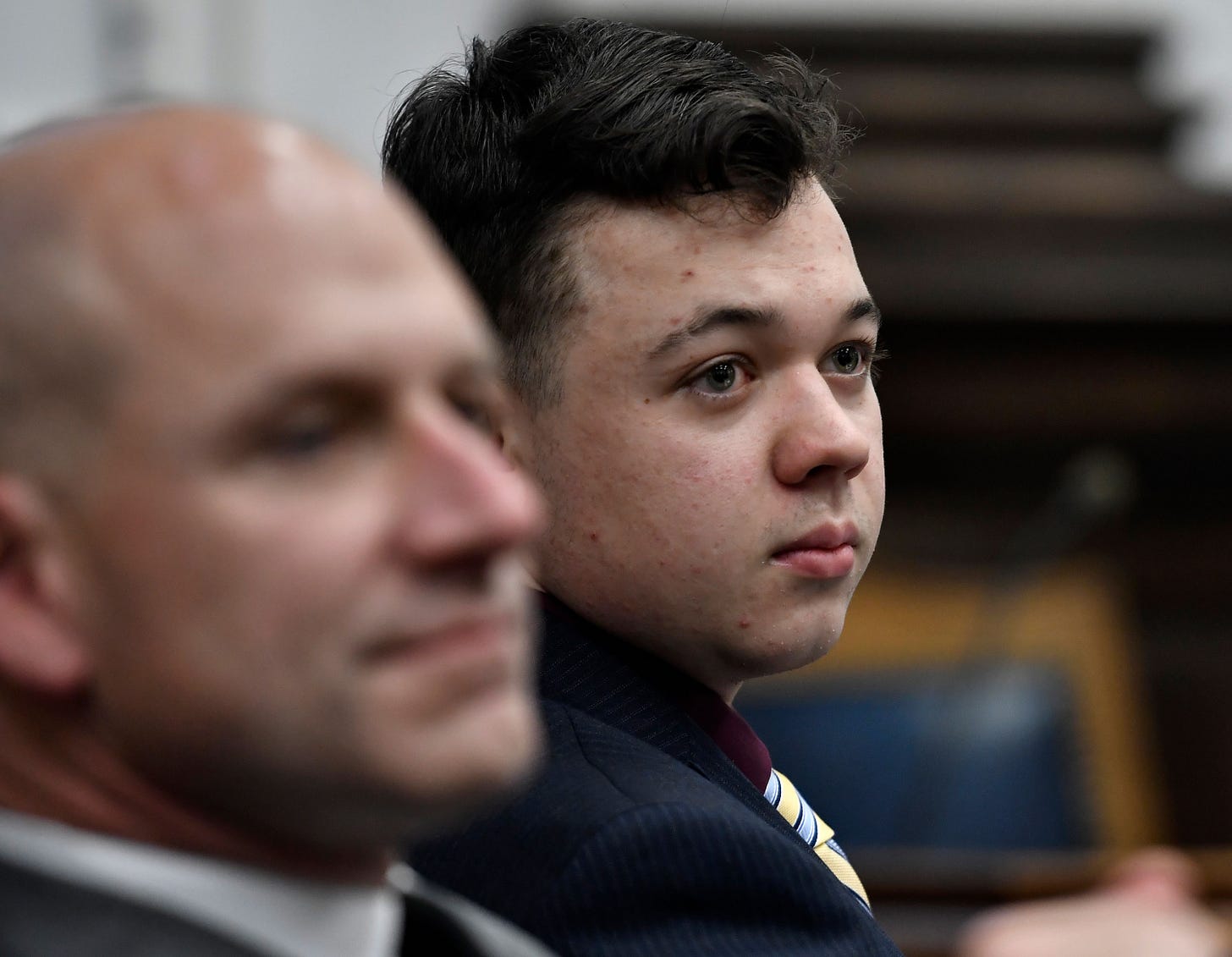Why the Kyle Rittenhouse Verdict Doesn’t Matter
It's a Misdirection to Keep Us from the Real Issue
Kyle Rittenhouse was a seventeen-year-old kid who made a decision to travel to another state, pick up a rifle, and insert himself in a volatile situation—a decision that resulted in the loss of two lives. Both the men he killed would probably still be alive if Rittenhouse had stayed home and let the police do their job. Those are the facts. But these facts seem to be irrelevant to both those who condemn and those who celebrate Rittenhouse’s not-guilty verdict. Instead, both sides have inflated Rittenhouse into a blimp-sized symbol of racial tension in America like a giant cartoon character balloon floating over a used car lot. And like those balloons, it’s all gas with little substance.
This is a reader-supported newsletter. Both free and paid subscriptions are available. The best way to join the community and support my work is by taking out a paid subscription.
Much of that lighter-than-air intellectual gas comes from the conservative media bullhorns gleefully chirping about how the verdict will result in more freedom of self-defense and how this proves that the justice system works. They know none of that is true but the bright, waving Rittenhouse balloon gets your attention so they can launch into their simplistic soliloquies about Freedom this and Freedom that. People of Color are worried about vigilantes who think they’ve just been issued a 007 license to kill roaming the streets looking for targets darker than beige. Their interpretation of the verdict is more realistic since they’ve seen how injustice breeds more injustice.
But this is the wrong case to make into such a massive symbol.
We should start by recognizing that a not-guilty verdict was inevitable, not because of racism but because of the law. Sure, the judge seemed a bit biased at times and of the 20 jurors only one was a Person of Color. But, from what we were able to piece together through news reports, the prosecution did not present a compelling case. The state laws about self-defense did favor Rittenhouse’s actions. In the end, the verdict did not seem to be the result of racial bias that favored him because he was white. The fact that we may not like why Rittenhouse was in Kenosha, or that the police were clearly prejudiced in supporting him as he wandered the streets with a loaded rifle, or that he’s become a poster boy for white supremacists and right-wing pundits, doesn’t justify conviction if the case presented in court doesn’t merit it.
America’s past is too littered with the bodies of people lynched, executed, or imprisoned because of what they represented rather than any legal evidence. We sent 120,000 people of Japanese ancestry to prison camps during World War II as symbols rather than verifiable threats. Two Black Muslim men convicted of the assassination of Malcolm X were exonerated this week, 55 years after their conviction, when it was discovered that the FBI and the NYPD withheld information from the defense that would have likely resulted in their acquittal.
If we are to be outraged by miscarriages of justice in the courtroom, we can’t be outraged by a verdict that is justified based on the case presented. However, if the three defendants who killed Ahmaud Arbery are found not guilty, that would be justified outrage.



